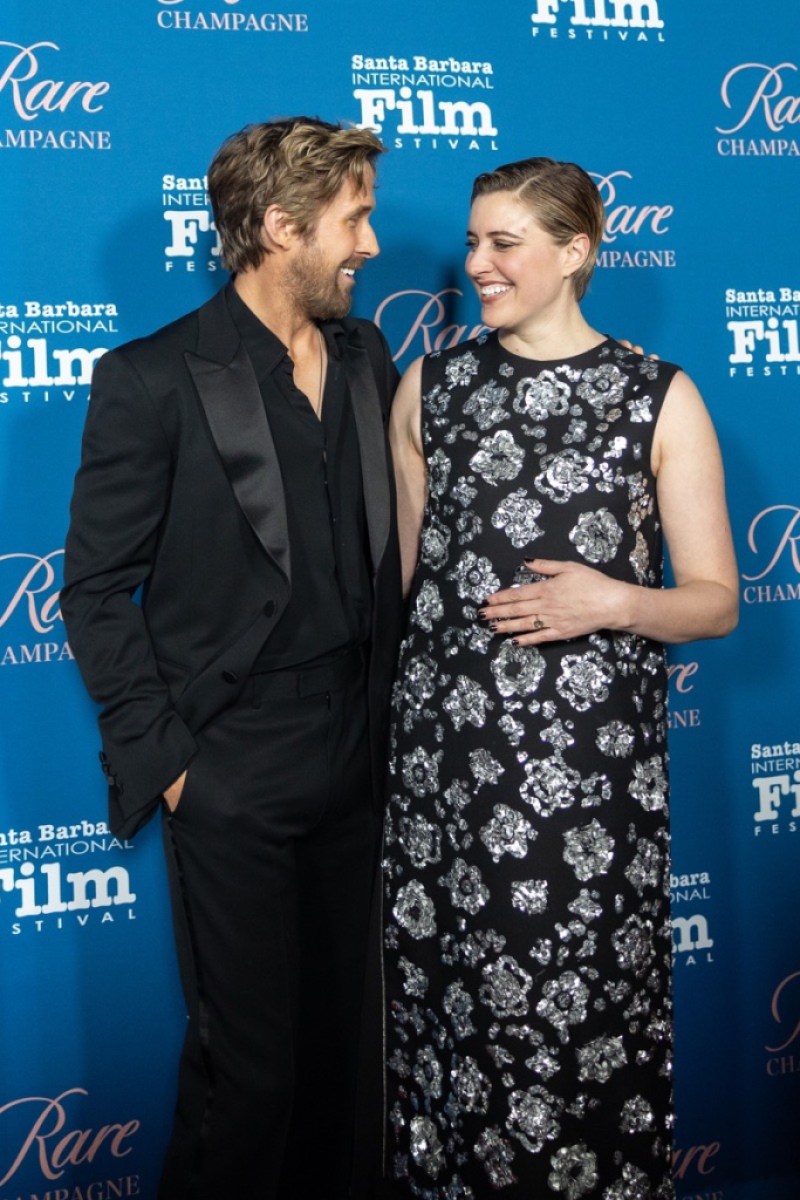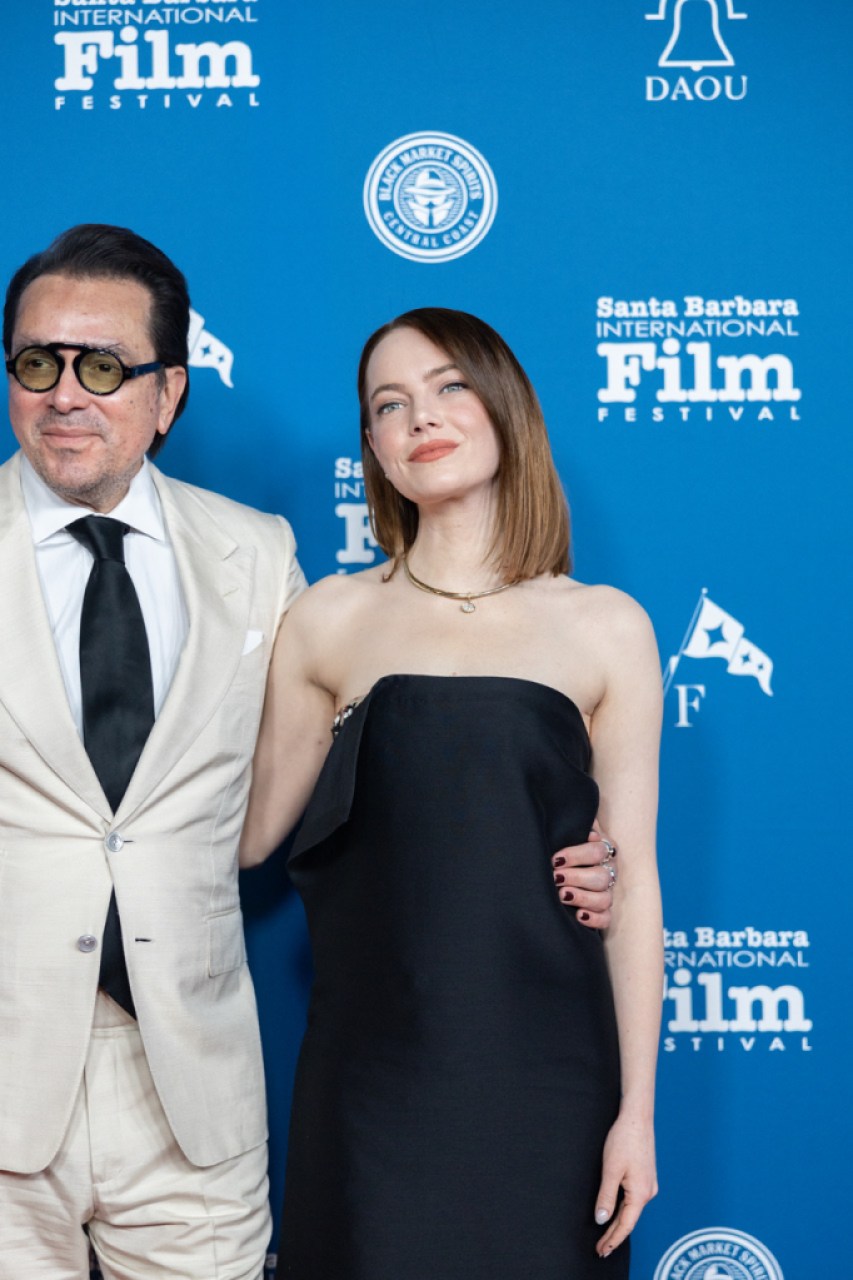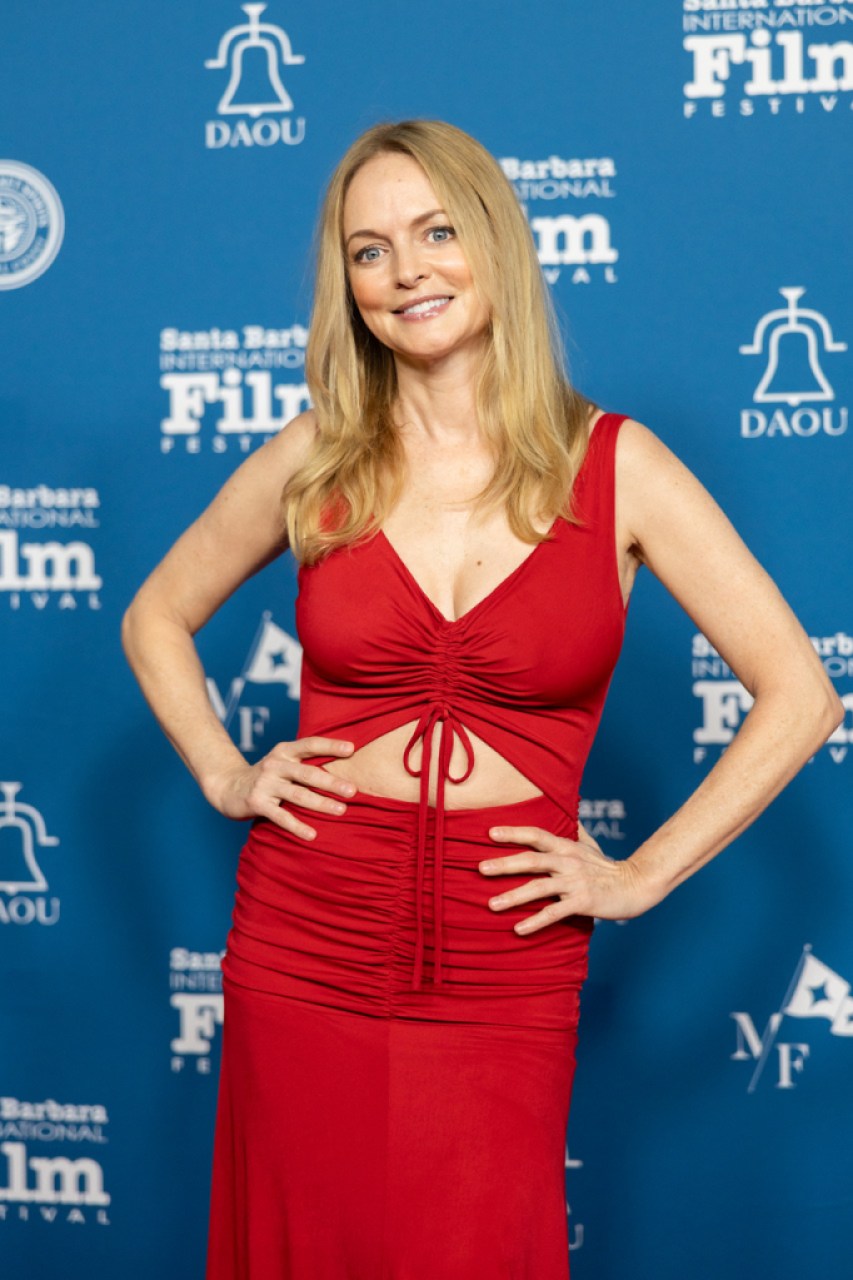Santa Barbara International Film Festival @ 39 Finds a Strong Artistic and Showbiz Stride
The 39th Edition of SBIFF Amounted to One of the more Enjoyable and Edifying of Recent Years

It all started with Ken, a very good place to start. Although the official spread of the Santa Barbara International Film Festival, now up to the Jack Benny-approved age of 39, was 10 days and one opening night, the festivities had its annual pre-teaser Kirk Douglas Award tribute at the Ritz-Carlton Bacara in January. (See our story here.) There, the spotlight went to Ryan Gosling, as the Oscar-nominated actor who pulled off the complex Ken turn in the brilliant popcorn-meets-art film Barbie, which many feel was otherwise snubbed by Oscar and Co. because although the film received eight nominations (including Best Picture and Supporting Actor and Actress nods for Gosling and America Ferrera, director Greta Gerwig and star Margot Robbie were not nominated).
Longtime SBIFF-goers and watchers know not to necessarily judge a festival by its bookends on opening and closing night. This year, though, the festival kicked off with a heartwarming documentary, Madu, and closed on Saturday, February 17 with a world premiere of the quite delicious and unpretentious romcom Chosen Family, with Heather Graham as winsome protagonist, writer and director.
What landed in Santa Barbara between those poles made for one of the stronger SBIFFs in recent memory — certainly in the past few, pandemic-afflicted and then pandemic-tinged years. On opening night, charismatic and galvanizing festival head Roger Durling, now in his 22nd year at the helm, extolled to the Arlington crowd the power of “watching a film and turning to someone to talk about it.” There was much to talk about for a week-and-change.

By design or otherwise, the tribute evenings gave a special spotlight to Hollywood “underdogs” who are established as important and gifted actors who haven’t gotten credit due in terms of leading roles — Robert Downey, Jr., Mark Ruffalo, Paul Giamatti, and Jeffrey Wright. (Unfortunately, the sole woman on the list, Annette Bening, had to cancel because of COVID). The over 200 films from the “IF” (“international film”) piece of the SBIFF acronym were generally of a high and provocative order by serious artistic standards, and the program was also speckled with the entertainment factor of larks such as Suze, French Girl and the wicked comic cuss-fest Wicked Little Letters.
One of the great things about SBIFF, especially situated as it is in the runway to the Academy Awards and its heralded nominees making the circuit, is the cross-referencing aspect, from tribute to tribute and elsewhere in town. Barbie talk, for instance, continued through the festival, as when monologue queen America Ferrera noted that “no one asked for this movie, but clearly we needed it.” Billie Eilish, whose arrival at the Arlington Theatre for the Variety Artisans Award was greeted by squeals of a young (and young at heart) fan throng, talked about her experience penning the Oscar-nodded theme song with her ever-present brother/creative partner Finneas, “that song picked up like a little hook lifting me out of a dark place.” The same could be said for the legions of the film’s fans.
Ruffalo earned the distinction of being the only person with a microphone to address the elephant in this or any room, the Israeli-Palestinian crisis, carrying on as we sink into SBIFF’s sensory escape zone. He ended his acceptance speech by waying “we can’t bomb our way to peace. We can’t act like what’s happening isn’t happening. It’s a scary time. I want to state that it isn’t being talked about enough.”
Interesting themes emerged over the course of ten days spent in darkened theaters along State Street. In the film program, strongly curated this year by program director Claudia Puig and team, curious film-goers could detect certain recurring subjects, approached from different angles. The ever-relevant subject of refugees and immigrants came through in such varied films as Mattero Garrone’s captivating saga of young Senegalese immigrants braving the path to Europe, Io Capitano (clearly one of the finest films of the roster — and coming soon to the Riviera Theatre), the Danish Before it Ends, In the Rearview and the Anthony Hopkins-starring One Life. The proverbial “coming of age” genre got kicked around in fascinating, alternative ways, in the Danish film Mr. Freeman (also about immigration), the woozy wilds of the British film Hoard, the Bosnian (yes, Bosnian) Excursion, and a jewel from Quebec, On Earth as in Heaven.
Outliers in the best-of camp, for this cinephile, included the surprising gruff but powerful two-shot character/existential study from Australia, The Rooster, and a reflection on time’s passing in a beautiful Irish rural outpost, That They May Face the Rising Sun (spoiler alert — the title is the last line of the film).

All told, the greatest and most impactful film I saw during the ten days was Zone of Interest, a deceptively calm but deeply hauntingly new variation on the theme of holocaust portrayal, but that doesn’t count: this was not an official SBIFF entry, but part of a smartly designed series of major recent films screened for free at the Arlington. (That’s an idea, an invitation to the public beyond just the SBIFF scope, whose time has come and should continue.)
The festival offered us insights from inside the art and machinery of what is on screen, as when sound designer Johnnie Burn (also on sound duty for Poor Things), on the International Directors Panel, talked about the arduous process of creating the all-important, unseen sonic element in the film. “It’s two films,” Burn said, “the one you see, a family drama and the sound which is a horrorscape. I needed to become an expert on what Auschwitz sounded like in 1943.
“Sound is really powerful. Sound has a connection to the primitive brain in a way that visuals don’t necessarily have. When you hear something, you append a memory or an object to that. When you look at a picture, you process it, and when you hear a sound, you react to it. That’s an enormously important aspect of Zone of Interest.”
Directorial interest enjoyed an especially tight focus this year in the Outstanding Directors Panel, with Justine Triet (Anatomy of a Fall) and the mighty Martin Scorsese (Killers of the Flower Moon) being paid tribute for their much-acclaimed films. Killers was also represented by Lily Gladstone, the first Native American Oscar nominee, who appeared at the Virtuosos Awards, opening with a surprise musical prelude by Oscar-nominee Scott George and the Osage tribal ensemble.
Sound and music are obviously central characters in the doc American Symphony, about Jon Batiste’s struggles with his wife’s illness and Grammy-lined and Carnegie Hall-bound glories over a short period of time. He turned up for an inspiring Q&A with Durling after the Arlington screening. Batiste offered a life-affirming message, suitable for his own life and the life of SBIFF: “You process it by just living, with upward projection — move, move, move.
“I came to realize that we all go through these things. There are the great times, there are the rough times. It’s all just times.”
Looking back over the dizzying thicket of films, toasts and events, SBIFF 2024 was a very good year, indeed. For this eager cinephile, of the 55 films I personally screened [Editor’s note: that’s a real number!] boiling down to a Top Ten list is challenging. But here goes: Io Capitano, We Grown Now, That They May Face the Rising Sun, The Rooster, Thank You Very Much, Mr. Freeman, On Earth as in Heaven, Giants Rising, The Tundra Within Me, Dear Jassi.
Onward to festival number 40. Thanks for the intro, Ken.
Sun, Apr 28 6:00 PM
Santa Barbara
Thu, May 02 5:00 PM
Santa Barbara
Sat, May 04 10:00 AM
Lompoc
Sat, Apr 27 11:00 AM
Santa Barbara
Sat, Apr 27 3:30 PM
Santa Barbara
Sat, Apr 27 8:00 PM
Santa Barbara
Sun, Apr 28 11:00 AM
Santa Barbara
Wed, May 01 7:30 PM
Santa Barbara
Thu, May 02 5:00 PM
Santa Barbara
Thu, May 02 5:00 PM
Santa Barbara
Fri, May 03 4:00 PM
Santa Barbara
Fri, May 03 8:00 PM
Santa barbara
Sat, May 04 10:00 AM
Solvang
Please note this login is to submit events or press releases. Use this page here to login for your Independent subscription
Not a member? Sign up here.
You must be logged in to post a comment.